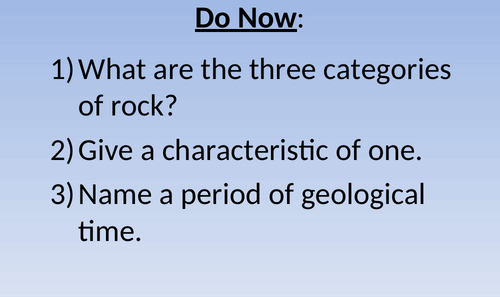In a world increasingly engulfed by the climate crisis, the everyday habits we overlook often harbor more impact than we realize. Have you ever pondered how your personal energy consumption contributes to the broader tapestry of global warming? Every light switched on, every appliance powered up, cumulatively feeds into the phenomena of climate change. With that in mind, let’s delve into the concept of wasteful energy habits and their deleterious effects on our environment.
At the heart of the energy crisis lies unwarranted energy consumption. The average household exudes a substantial carbon footprint due to mindless energy practices—such as leaving lights on in empty rooms, underutilizing energy-efficient appliances, or neglecting simple acts like unplugging devices. Each of these actions, seemingly innocuous in isolation, amounts to wanton wastefulness. Consequently, such habits are tantamount to collectively contributing to the proliferation of greenhouse gas emissions, a significant driver of global warming.
The process of generating electricity typically relies on the burning of fossil fuels—coal, natural gas, and oil—which releases copious amounts of carbon dioxide into the atmosphere. This leads to a gradual accumulation of greenhouse gases, which entrap heat and further escalate temperatures. Thus, what may appear to be harmless choices, such as keeping a television on standby or using incandescent bulbs, ultimately serve as agents of climate change.
According to the U.S. Energy Information Administration, residential energy consumption accounts for approximately 21% of total energy use. This statistic alone signifies a staggering opportunity for collective action. If households across the globe adopted mindful energy practices, we could impede the spiraling trajectory of global warming. This evokes an interesting challenge: Can you commit to reducing your household energy consumption by a mere 10%?
The transition to sustainable energy habits begins with awareness. Each household should conduct an energy audit—a meticulous examination of energy use patterns, which aids in identifying inefficiencies. Simple changes, such as installing programmable thermostats, can yield significant savings, both economically and environmentally. Want to augment your impact? Consider transitioning to LED lighting, which, unlike its incandescent predecessors, uses a fraction of the electricity while lasting considerably longer.
But the challenge extends beyond individual actions. The integration of renewable energy sources into our energy grids is paramount. Solar, wind, hydro, and geothermal energy present clean alternatives to fossil fuels. The proliferation of green energy technology heralds a new era in power generation, allowing consumers to engage with sustainable practices at a deeper level. As individuals opt for green energy plans through their utility companies or invest in solar panels for their homes, they not only decrease their carbon footprint but also contribute to a burgeoning market aimed at cleaning up our energy supply.
Moreover, individuals can galvanize their communities by initiating local programs or participating in existing initiatives. Neighborhood campaigns can encourage energy conservation, led by educational efforts and community challenges reminiscent of friendly competitions. For example, organizing a “Wattage Reduction Challenge” within your community could incite collective participation and foster a spirit of cooperation aimed at lowering energy consumption. This not only cultivates a sense of solidarity but also amplifies the message of accountability in energy use.
Additionally, it’s crucial to address energy consumption in non-residential sectors. Businesses, too, have a hefty responsibility in this matter. Implementing corporate sustainability policies that prioritize energy efficiency can facilitate a significant reduction in overall emissions. Industries can undertake initiatives like retrofitting buildings with energy-efficient technologies, encouraging remote work to minimize energy use, or even engaging in carbon offset programs. Each step toward energy conservation coalesces into a larger movement combating global warming.
Furthermore, it’s essential to highlight the role of technology in supporting sustainable habits. Innovative devices, such as smart meters and energy management systems, provide real-time data that empower consumers to make informed choices. Understanding consumption patterns can instigate behavioral changes that significantly reduce wastage. For instance, simply monitoring peak usage times can help households shift energy-intensive activities to non-peak hours, diminishing strain on the energy grid while reaping financial benefits.
In tandem with technological advancements, promoting electric vehicles (EVs) as a primary mode of transportation can yield notable emissions reductions. With transportation contributing approximately 29% of greenhouse gas emissions in the United States, transitioning from gasoline-powered vehicles to EVs presents a formidable opportunity for curbing carbon outputs. Moreover, as infrastructure for EV charging becomes more prevalent, the barriers to adopting such sustainable transportation solutions are steadily diminishing.
Ultimately, the ethos of conserving energy is rooted in mindfulness and responsibility. Challenging oneself to reevaluate daily habits can catalyze a movement toward sustainability. The pervasive influence of energy consumption on global warming necessitates a paradigmatic shift: from apathy to action, from consumption to conservation. Each act of conscious energy use invokes a ripple effect, contributing to a more sustainable future.
In conclusion, while the challenge may seem daunting, the commitment to reduce everyday energy habits can lead to significant strides in mitigating climate change. When each person endeavors to eliminate wasteful wattage, together we forge a path toward a healthier planet. As stewards of the Earth, we possess the power to facilitate transformative change—are you ready to take up the challenge?








